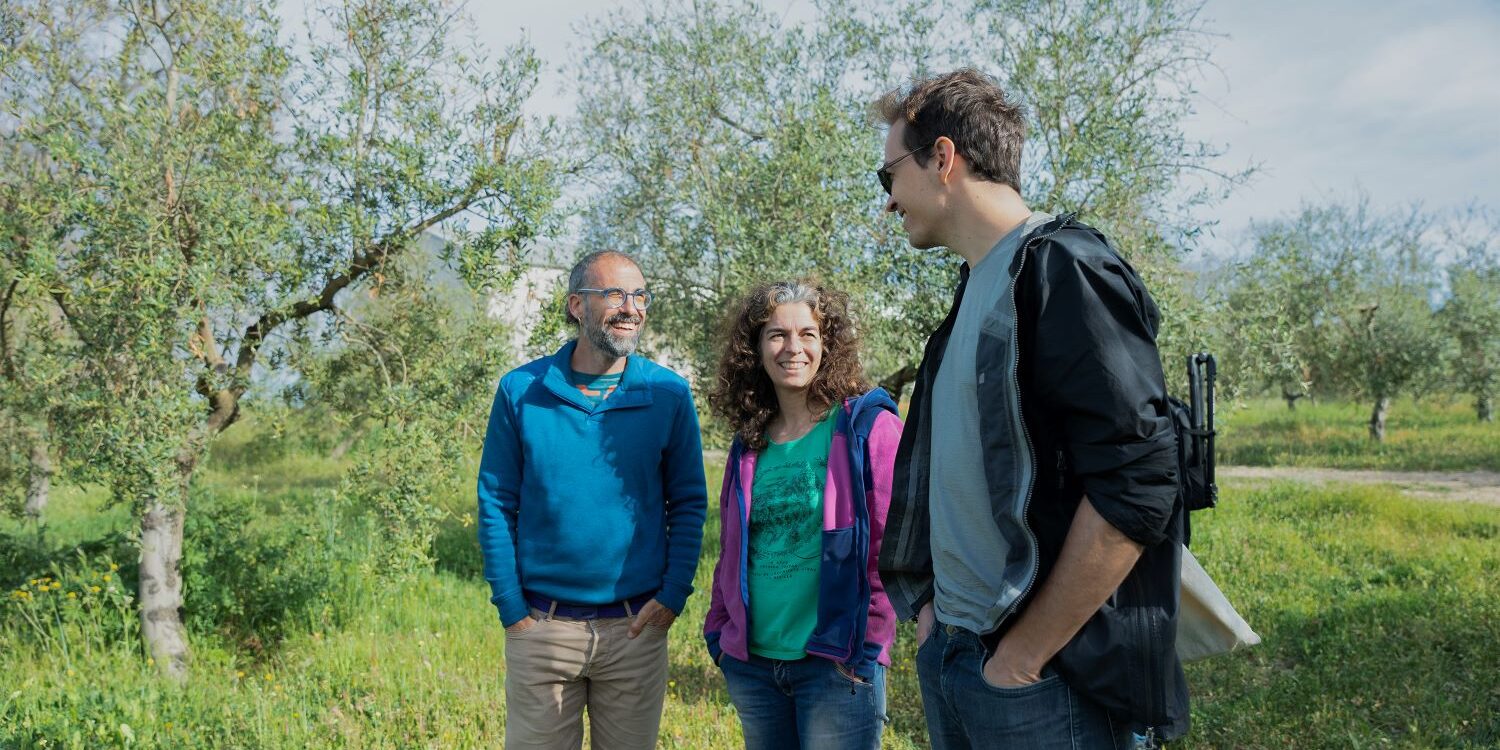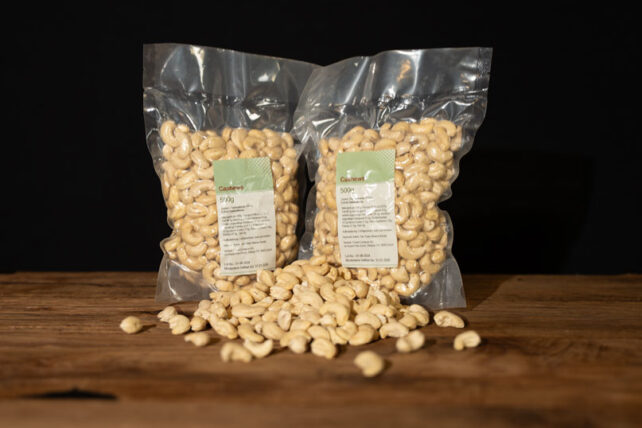We can only produce high-quality olive oil if the soil is healthy

It is hot and dry in summer, but at the same time there is less and less rain in winter and spring. And then there are storms like the one in the fall of 2024. We are talking about Andalusia, Spain's southernmost autonomous community on the mainland, which is twice the size of Switzerland in terms of area. Producing food here using regenerative farming methods is both a challenge and a necessity - at least if our partner cooperative has its way. Tierra y Libertad goes. We spoke to Begoña B. Cosín and Rafael García about their own business and the philosophy of the cooperative.
1. what can you tell us about your company?
Rafa: We manage my father's 14-hectare olive grove in Córdoba, who retired in 2008. We have been certified organic since 2014 and work according to regenerative principles. We produce high-quality oil from the olives. We are now also able to grow and produce table olives in the Sierra de Aracena, where we live. These olives are now also available for crowd containers for the first time.
2. Have you always wanted to grow olives and make olive oil? Are there other crops that interest you?
Begoña: Wir verbringen viele Stunden unseres Lebens mit der Arbeit. Es scheint uns sehr wichtig, in dieser Zeit etwas zu tun, das mit unseren Prinzipien übereinstimmt. Der Baum ist eines der Lebewesen, die ich am meisten bewundere. Daher interessiert ich mich für einer Produktion, die auf der Pflege von Bäumen und ihrem Ökosystem basiert. Insbesondere der Olivenbaum ist unglaublich stark und widerstandsfähig, er stellt keine besonderen Ansprüche an das Land und das verfügbare Wasser. Er ist ein unglaubliches Geschenk. Ausserdem ist das Olivenöl ein Produkt, das leicht zu konservieren und zu transportieren und bei den Menschen sehr beliebt ist. Das ist alles relativ unkompliziert. Die restlichen Pflanzen interessieren mich vor allem zum Essen 😉!
3. regenerative cultivation methods, what does that mean for you?
Begoña: The soil is central to regenerative agriculture. Only if the soil is healthy can the plants - in our case the olive trees - thrive and we can produce high-quality olive oil that is both organic and tasty. We ensure that the soil is well covered: various legumes and grasses that grow naturally in the soil bind as much water and soil mass as possible and provide nutrients such as nitrogen. We also chop up the branches from the pruning and spread them on the ground. In this way, we close the nutrient cycle on the farm itself and only need to bring in a small amount of fertilizer from outside.
4 In principle, it can be said that regenerative agriculture strengthens resilience to extreme weather events. Nevertheless, you had a major fire in your olive grove in Córdoba in late summer 2023. Can you tell us more about it?
Begoña: Unfortunately, we were unable to fully determine the cause of the fire. We assume that a neighbor burned crop residues in his field and the fire spread to our olive trees. In total, around 1,200 olive trees were affected, which corresponds to around a third of all trees. The holm oaks and other trees that we had planted as a natural hedge were completely burnt.
5. a year has now passed since the fire, and you have already sent us videos about it. Can you briefly summarize what has happened since then?
Begoña: Some of the olive trees have already recovered. Some of the trunks are burnt on the outside, but the plants continue to grow on the inside. Over time, we have seen which branches and trees we can work on. We have gradually cut off dry branches and many trees have recovered - even though there is still some pruning and other work to be done that will benefit the olive trees in the coming years. The soil has also recovered and is sufficiently covered thanks to the many rains in spring. We expect most of the trees to bear fruit again in two or three years. We will have to remove a few because they have died. We have replanted the burnt natural hedge and in the meantime have taken the opportunity to plant more hedges in other beds and another grove of aromatic plants.
6 Many producers in Andalusia face similar challenges to yours. That's why you have joined forces to form the Tierra y Libertad cooperative. Rafa, you are a founding member and president of the cooperative. What was the motivation for founding it?
Rafa: About nine years ago, we paved the way for the Tierra y Libertad cooperative: Begoña, my brother and I, together with Juan and César Salamanca from BioValle. We have joined forces to strengthen smallholder family structures and make a sustainable food system possible: One that treats the land, its custodians and consumers with respect. Customers know the origin of a product, the history of the farmers and the prices that the producers receive.
7. what philosophy do the members of Tierra y Libertad share?
Rafa: All members of Tierra y Libertad are certified organic and are committed to cultivating the land in a way that is as close to nature as possible. In other words, they do a little more than is required in organic farming. Depending on the person, farm and location, the fields of activity can vary: Some focus on the production of organic fertilizers, others on the revival of local varieties. And there are also those who are very politically active and stand up for more rights for small farmers. We also support each other. For example, Arrate and Igor dry turmeric for Álvaro. Carlos, Jesús and Jose often share best farming practices because they all grow avocados and other fruit. As a cooperative, we are constantly working to deepen these relationships and provide concrete support to our members. We are currently running a pilot project involving six farms: together we are testing biodiversity-promoting measures and sharing the findings with all Tierra y Libertad members.

